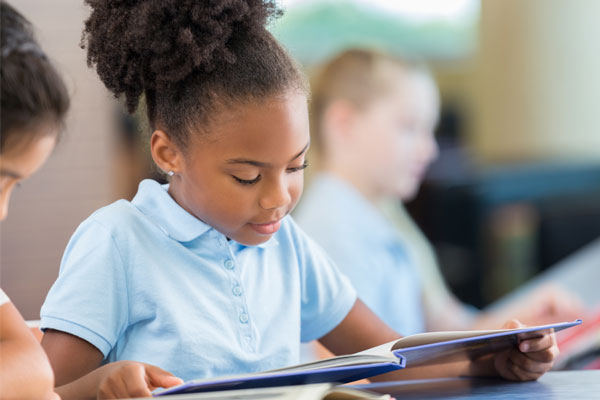Remedial Schools in Johannesburg: Improving Academic Success Via Customized Education
Remedial Schools in Johannesburg: Improving Academic Success Via Customized Education
Blog Article
The Necessity of Remedial Schools in Bridging Educational Gaps and Fostering Confidence in Pupils That Experience Discovering Difficulties
The function of remedial colleges in resolving the academic needs of students with learning troubles can not be downplayed. These institutions supply critical treatments through customized guideline that not only targets ability deficits yet likewise fosters an atmosphere for building confidence. As pupils engage in customized understanding experiences, they often discover paths to success that were formerly covered. The effect of such instructional methods expands past immediate academic end results, elevating vital questions about their long-term efficiency and the more comprehensive effects for our academic system. What transformative possibilities might emerge from a much deeper exploration of this problem?
Comprehending Learning Difficulties
Comprehending learning problems is crucial for caregivers, moms and dads, and instructors alike, as these obstacles can considerably affect a pupil's scholastic journey. Understanding problems include a series of conditions that affect the capacity to obtain, procedure, or retain details. These may include dyslexia, dyscalculia, and attention-deficit/hyperactivity disorder (ADHD), among others. Each condition offers unique obstacles that can impede a trainee's efficiency in traditional instructional settings.
Identifying the indicators of finding out troubles early is critical for timely treatment. Once recognized, a customized strategy that considers the person's certain requirements is essential for effective discovering.
Moreover, comprehending the psychological and emotional effects of finding out troubles is important. Pupils frequently experience frustration, anxiousness, or lessened self-esteem because of their battles, which can further restrain their scholastic progress. By promoting a setting of assistance and understanding, teachers and caretakers can help alleviate these challenges, empowering students to accomplish their full prospective despite their problems.
Duty of Remedial Schools
Therapeutic institutions play a crucial duty in addressing the certain demands of pupils with finding out problems. These establishments supply a different instructional setting tailored to support trainees that might battle in typical settings. By focusing on individualized discovering strategies, therapeutic schools develop a risk-free room where trainees can develop foundational skills at their very own pace, fostering a feeling of reducing and belonging anxiousness often related to scholastic challenges.
Along with academic support, therapeutic institutions highlight the development of self-esteem and self-confidence amongst pupils. By commemorating little success and providing positive support, educators assist pupils acknowledge their potential, which can substantially influence their total academic trajectory. Such colleges often use specialized personnel educated in acknowledging and dealing with various learning troubles, making certain that students get appropriate treatments and resources.

Customized Instruction Techniques
Effective tailored instruction approaches are critical for fulfilling the diverse demands of trainees with finding out problems. These techniques involve adjusting teaching approaches, evaluations, and materials to straighten with individual understanding profiles, therefore enhancing academic involvement and understanding.
One effective method is distinguished instruction, where instructors customize content, process, and products based on students' readiness levels, interests, and finding out preferences. This technique enables different task complexity, making it possible for pupils to engage with the material at important site a suitable level.
Moreover, using assistive technologies can significantly support tailored instruction. remedial schools in Johannesburg. Tools such as speech-to-text software program and interactive understanding applications can give alternative means for trainees to access and show understanding
Including multisensory techniques is another important technique; by engaging aesthetic, auditory, and kinesthetic techniques, instructors can create a more inclusive understanding environment that deals with different discovering styles.
Normal evaluation and feedback are important parts of customized instruction, as they inform instructors regarding trainees' progression and areas needing more support. Ultimately, the implementation of these methods cultivates an adaptive discovering setting where students with discovering troubles can prosper academically and socially.
Building Pupil Confidence
Building pupil self-confidence is crucial for promoting a favorable discovering setting, especially for those with learning difficulties. Self-confidence works as a driver for engagement and perseverance, making it possible for pupils to take on obstacles they might or else avoid. In remedial colleges, educators use different approaches to develop this essential self-belief.
One efficient strategy involves setting attainable goals tailored to private pupils' capacities. When pupils experience success, despite just how small, it reinforces their idea in their capabilities and encourages them to pursue more achievements. Additionally, supplying constant, useful comments assists students recognize their progress and locations for enhancement without decreasing their self-esteem.
Developing a supportive classroom ambience is additionally important. Motivating peer cooperation promotes a sense of belonging and minimizes sensations of isolation. Educators can facilitate group tasks that highlight each student's staminas, stressing that everyone has distinct payments to make.
Additionally, incorporating social-emotional learning right into the educational program can gear up trainees with necessary coping mechanisms, allowing them to take care of problems extra properly. By focusing Read Full Article on confidence-building initiatives, therapeutic schools prepared for pupils to embrace learning and establish durability, ultimately transforming their educational experiences.
Long-term Advantages of Remedial Education
Enhancing scholastic skills via remedial education and learning uses significant long-lasting advantages for trainees facing finding out troubles. By dealing with fundamental spaces in expertise, therapeutic programs gear up trainees with necessary abilities crucial for academic success. This targeted guideline not only fosters improved performance in core topics but also lays the foundation for innovative learning.
One of the most notable long-lasting advantages is enhanced scholastic achievement. Pupils that join restorative education usually experience greater college graduation rates and boosted standardized learn this here now test ratings, opening up doors to additional academic chances. Additionally, the abilities obtained during therapeutic instruction urge lifelong learning routines, advertising durability and flexibility when faced with challenges.
Furthermore, therapeutic education considerably enhances self-efficacy. As students gain capability in their academic capacities, they create a favorable self-image and greater self-confidence in their capacity to succeed (remedial schools in Johannesburg). This newly found self-confidence can equate right into active participation in school and after-school activities, promoting social skills and involvement
Final Thought
In conclusion, restorative schools are important in attending to instructional gaps for trainees with discovering troubles. By giving customized instruction and fostering a helpful environment, these establishments not just assist in scholastic success however additionally boost student self-confidence.

Enhancing scholastic abilities through restorative education uses substantial long-lasting advantages for trainees encountering learning problems.In final thought, restorative institutions are necessary in dealing with academic spaces for pupils with finding out troubles.
Report this page